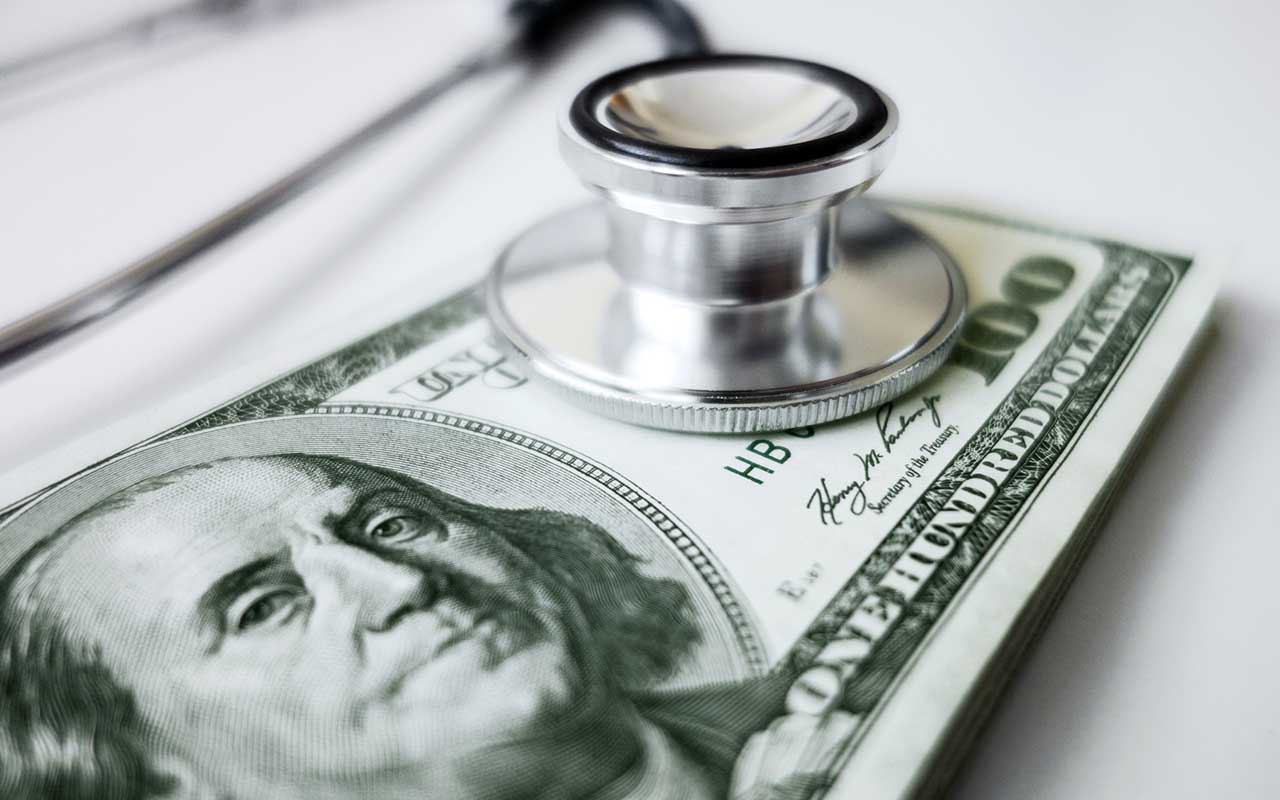Flex-Account Options When You Leave Your Job
I got laid off with one day's notice. What happens to the money I already put in my flexible-spending account for this year? Does my company have the right to keep it, or will I get it back?

Profit and prosper with the best of Kiplinger's advice on investing, taxes, retirement, personal finance and much more. Delivered daily. Enter your email in the box and click Sign Me Up.
You are now subscribed
Your newsletter sign-up was successful
Want to add more newsletters?

Delivered daily
Kiplinger Today
Profit and prosper with the best of Kiplinger's advice on investing, taxes, retirement, personal finance and much more delivered daily. Smart money moves start here.

Sent five days a week
Kiplinger A Step Ahead
Get practical help to make better financial decisions in your everyday life, from spending to savings on top deals.

Delivered daily
Kiplinger Closing Bell
Get today's biggest financial and investing headlines delivered to your inbox every day the U.S. stock market is open.

Sent twice a week
Kiplinger Adviser Intel
Financial pros across the country share best practices and fresh tactics to preserve and grow your wealth.

Delivered weekly
Kiplinger Tax Tips
Trim your federal and state tax bills with practical tax-planning and tax-cutting strategies.

Sent twice a week
Kiplinger Retirement Tips
Your twice-a-week guide to planning and enjoying a financially secure and richly rewarding retirement

Sent bimonthly.
Kiplinger Adviser Angle
Insights for advisers, wealth managers and other financial professionals.

Sent twice a week
Kiplinger Investing Weekly
Your twice-a-week roundup of promising stocks, funds, companies and industries you should consider, ones you should avoid, and why.

Sent weekly for six weeks
Kiplinger Invest for Retirement
Your step-by-step six-part series on how to invest for retirement, from devising a successful strategy to exactly which investments to choose.
What happens to the $1,000 I already put in my flexible-spending account for this year? I got laid off with one day's notice and had no medical bills for which to be reimbursed. Does my company have the right to keep the flex-plan money, or will I get it back?
Normally, you lose any flex-plan money you haven't used when you leave your job. But you can buy extra time, if you know how to ask for it.
First, find out whether your employer will give you until the end of the month to use the money. That's an option under some employer plans, says Sharon Cohen, group and health-care benefits counsel for Watson Wyatt.
From just $107.88 $24.99 for Kiplinger Personal Finance
Become a smarter, better informed investor. Subscribe from just $107.88 $24.99, plus get up to 4 Special Issues

Sign up for Kiplinger’s Free Newsletters
Profit and prosper with the best of expert advice on investing, taxes, retirement, personal finance and more - straight to your e-mail.
Profit and prosper with the best of expert advice - straight to your e-mail.
Or gain more time by signing up for benefits under COBRA –- the same federal law that lets employees keep group health insurance for up to 18 months after they leave their jobs. Most companies with 20 or more employees are required to offer COBRA coverage, which also applies to money in flexible-spending accounts. You don't have to use COBRA for health insurance to have a COBRA flex plan.
To keep your FSA open, you would continue making the same monthly contribution plus a 2% charge –- so if you signed up to have $100 per month deducted from your paycheck, you'd pay $102 per month and still have access to your FSA, says Brandon Wood, director of health-care product management for WageWorks, which administers employer health plans.
Then you can pay for COBRA for just a month or two while you get back your money. You'll be able to use $100 of the monthly COBRA charges, as well as the $1,000 you already contributed, for medical expenses.
You can use FSA money for eyeglasses, contact lenses, prescription and many nonprescription medications, dental care and a lot of other medical expenses that aren't covered by insurance. For more information about uses for your flex plan, 25 Ways to Spend Your Flex Account.
Profit and prosper with the best of Kiplinger's advice on investing, taxes, retirement, personal finance and much more. Delivered daily. Enter your email in the box and click Sign Me Up.

As the "Ask Kim" columnist for Kiplinger's Personal Finance, Lankford receives hundreds of personal finance questions from readers every month. She is the author of Rescue Your Financial Life (McGraw-Hill, 2003), The Insurance Maze: How You Can Save Money on Insurance -- and Still Get the Coverage You Need (Kaplan, 2006), Kiplinger's Ask Kim for Money Smart Solutions (Kaplan, 2007) and The Kiplinger/BBB Personal Finance Guide for Military Families. She is frequently featured as a financial expert on television and radio, including NBC's Today Show, CNN, CNBC and National Public Radio.
-
 Dow Leads in Mixed Session on Amgen Earnings: Stock Market Today
Dow Leads in Mixed Session on Amgen Earnings: Stock Market TodayThe rest of Wall Street struggled as Advanced Micro Devices earnings caused a chip-stock sell-off.
-
 How to Watch the 2026 Winter Olympics Without Overpaying
How to Watch the 2026 Winter Olympics Without OverpayingHere’s how to stream the 2026 Winter Olympics live, including low-cost viewing options, Peacock access and ways to catch your favorite athletes and events from anywhere.
-
 Here’s How to Stream the Super Bowl for Less
Here’s How to Stream the Super Bowl for LessWe'll show you the least expensive ways to stream football's biggest event.
-
 Laid Off With a Severance Package? Here’s How to Make a Plan
Laid Off With a Severance Package? Here’s How to Make a PlanGathering all the relevant information and staying organized is key, as is getting your financial team involved. Here are five financial planning tips to help.
-
 Pandemic Aid That’s Still Available
Pandemic Aid That’s Still Availablehealth insurance Broad-based stimulus checks and the like are over, but some people still qualify for help.
-
 3 Ways Early Retirees Can Minimize Their Health Insurance Costs
3 Ways Early Retirees Can Minimize Their Health Insurance Costshealth insurance Until you can go on Medicare, you’ll need health insurance on your own, and of course that can be pricey. Subsidies through the Affordable Care Act can be a big help, but you need to manage your income to qualify. Here are three tips to help make that happen.
-
 When It’s Time to Drop Your Parents’ Health Insurance
When It’s Time to Drop Your Parents’ Health InsuranceStarting Out: New Grads and Young Professionals Thanks to the Affordable Care Act, the uninsured rate for twenty-somethings has plummeted.
-
 You Got That New Job: Now It’s Time to Make the Right Financial Choices
You Got That New Job: Now It’s Time to Make the Right Financial Choicescareers Young professionals are on the move. If you’ve made a switch or have one on the horizon, follow this checklist to keep your finances on track.
-
 The Consequences of Gray Divorce
The Consequences of Gray DivorceDivorce Divorce has financial consequences for everyone, no matter what your age. But for those 50 and up, there are some special circumstances that make divorce more complicated and potentially more costly.
-
 Health Savings Accounts Get Even Better
Health Savings Accounts Get Even BetterFinancial Planning A health savings account is a powerful, tax-advantaged tool to cover out-of-pocket medical expenses and a smart way to save for medical expenses in retirement. New rules in 2020 let HSAs and flexible spending accounts (FSAs) cover even more of your health expenses.
-
 Dealing with an Early, Unexpected Retirement
Dealing with an Early, Unexpected Retirementretirement Current economic and health crises may be pushing many toward an unexpected retirement. Now is a good time to make a plan for yourself, just in case.